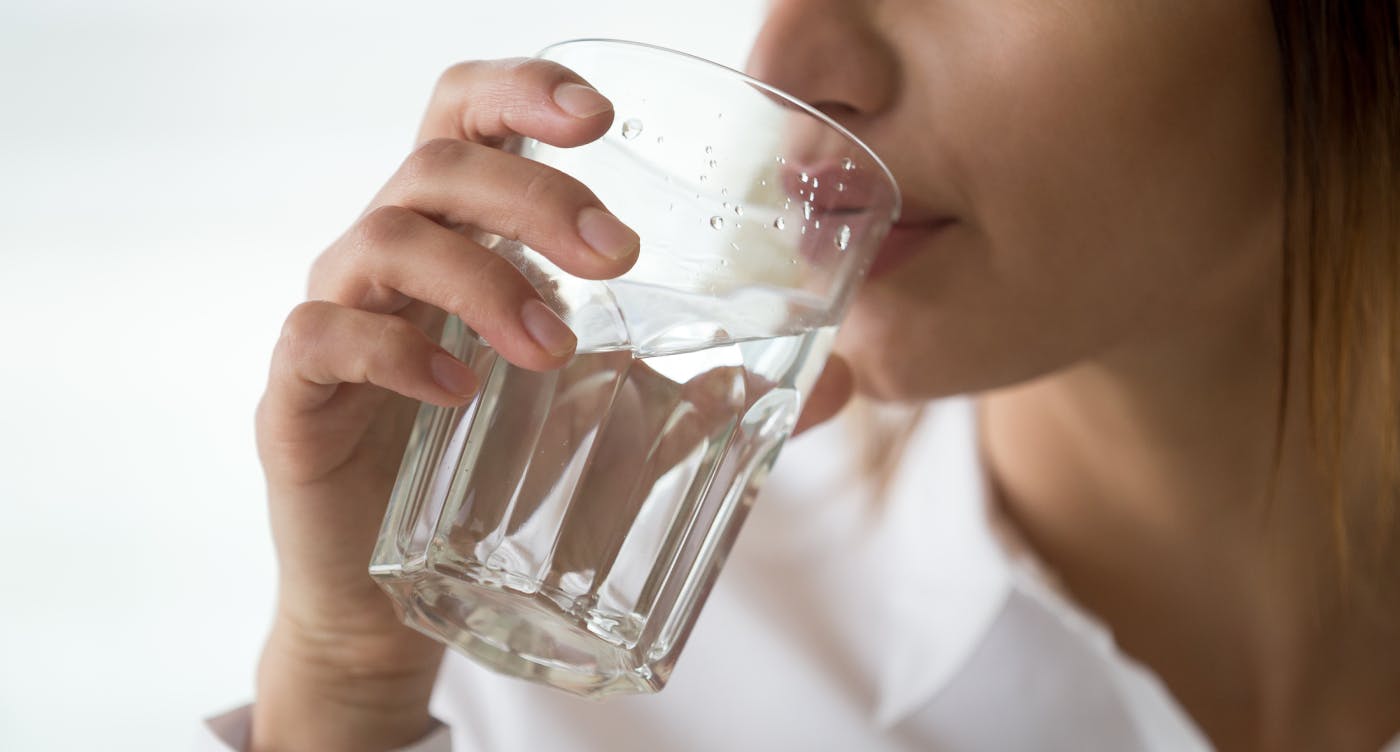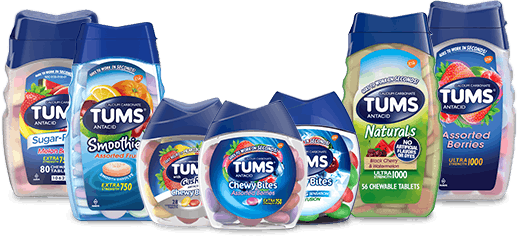The Connection Between Heartburn and Dehydration
It seems like everywhere you go, someone is telling you to drink water and stay hydrated! In addition to maintaining health and energy by drinking water, there’s also a theory that being dehydrated can lead to indigestion and heartburn. If that’s the case, a glass of water could be all it takes to cure your reflux. Learn the truth about the connection between heartburn and dehydration.
What Happens During Dehydration?
When you’re dehydrated, you’ve lost or used more fluid than you’ve taken in, and your body doesn’t have enough fluids to carry out all its necessary functions.1 While the most common reason that you might become dehydrated is simply not drinking enough liquids, other common causes may include:1,2
- High fever
- Excessive sweating during exercise or in hot weather
- Illness with vomiting or diarrhea
- Increased urination due to medications or diabetes
Dehydration can lead to a host of medical issues. If you fail to replenish your body’s fluids while being active in hot and humid conditions, you may end up with heatstroke.1 Dehydration that is left untreated for long periods of time may lead to UTIs and kidney failure.1 The fluids in your body help to balance and transmit electrolytes, so when you’re dehydrated, this process is thrown out of whack and you may have a seizure.1 One of the most serious consequences occurs when dehydration leads to low blood volume, which can lead to a sudden drop in blood pressure and oxygen saturation.1
What Does Dehydration Have to do With Heartburn?
When you have heartburn, your lower esophageal sphincter—which closes off your stomach from your esophagus— relaxes and allows the acidic contents of your stomach to flow back into your esophagus.3 This may even reach your throat and mouth, leading to a burning sensation in your chest and a sour taste in your mouth.3 If you have persistent acid reflux, you may be suffering from a condition called GERD, a more chronic form that is sometimes accompanied by a cough due to throat irritation from reflux.3
While drinking water during a meal won’t suddenly cure your reflux, it can help. A preliminary study reported that water can temporarily increase the pH level in your stomach, making it more alkaline.4 This can help to neutralize some of the effects of your stomach acid, which may have contributed to the myth that drinking a lot of water can help with heartburn and may have certainly bolstered some people’s belief that staying hydrated can dilute stomach acid. However, there’s no basis to the myth that water can thin or weaken your stomach acid.5 Drinking water during or after a meal is necessary for your body to be able to break down and digest food.5
For those individuals who have developed a cough as a result of chronic acid reflux, taking frequent sips of water can help with coughing and reflux in a few ways:6
- The act of drinking water can inhibit the coughing reflex.
- This can break the cycle of one cough triggering another and can lessen recurrent coughing as a result of acid reflux.
- Drinking water stimulates digestion which can help decrease the occurrence of heartburn and throat irritation brought on by reflux.
Drinking water is useful when you’re experiencing heartburn, but mostly as a short-term solution for mitigating symptoms.
Indigestion, Heartburn & Dehydration
If drinking water is necessary to stimulate digestion, it can also help soothe indigestion and related heartburn.6,7 Indigestion is a general term for an upset stomach and refers to a set of symptoms rather than a certain disease.7 Symptoms of indigestion may include:7
- Feeling uncomfortably full during or after a meal.
- Discomfort, burning and bloating between your breastbone and bellybutton.
- Nausea.
- Heartburn.
Common causes for indigestion and common causes for heartburn have a lot of overlap, such as:3,7,8
- Overeating or eating too rapidly
- Caffeinated, alcoholic or carbonated drinks
- Foods that are fatty, greasy or spicy
- The amount of stomach acid produced by your body
Since drinking water and staying hydrated are key to stimulating digestion, it can help kickstart the digestive process and make you feel less full, eliminating indigestion and its concurrent heartburn.6
Managing Heartburn Symptoms
You need stomach acid to help break down the food you eat and absorb nutrients.8 But when you eat a triggering food, or too much, too fast, you may experience the unpleasant symptoms of heartburn and indigestion, where the acid will come back up your throat. A combination of staying hydrated, and lifestyle choices like paying attention to what and how you eat may save you the stress of heartburn and indigestion.
While a glass of water can temporarily make your stomach less acidic and can help mitigate any GERD-related coughing, a better solution is to pair your hydration with an antacid like TUMS. Whether you prefer TUMS Smoothies or TUMS Chewy Bites, you’ll find fast relief for your heartburn symptoms.
Source Citations:
- Dehydration: Symptoms & cases. Mayo Clinic. https://www.mayoclinic.org/diseases-conditions/dehydration/symptoms-causes/syc-20354086. Accessed 9/6/23.
- Dehydration. Johns Hopkins Medicine. https://www.hopkinsmedicine.org/health/conditions-and-diseases/dehydration-and-heat-stroke. Accessed 9/6/23.
- GERD (Chronic Acid Reflux). Cleveland Clinic. https://my.clevelandclinic.org/health/diseases/17019-gerd-or-acid-reflux-or-heartburn-overview. Accessed 9/6/23.
- A glass of water immediately increases gastric pH in healthy subjects. National Library of Medicine. https://pubmed.ncbi.nlm.nih.gov/18473176/. Accessed 9/6/23.
- Does drinking water during or after a meal affect or disturb digestion? Mayo Clinic. https://www.mayoclinic.org/healthy-lifestyle/nutrition-and-healthy-eating/expert-answers/digestion/faq-20058348. Accessed 9/6/23.
- Frequent Sips of the Water for the Management of Gastroesophageal Reflux Induced Refractory Cough. National Library of Medicine. https://www.ncbi.nlm.nih.gov/pmc/articles/PMC6582892/. Accessed 9/6/23.
- Indigestion: Symptoms & Causes. Mayo Clinic. https://www.mayoclinic.org/diseases-conditions/indigestion/symptoms-causes/syc-20352211. Accessed 9/6/23.
- Hypochlorhydria. Cleveland Clinic. https://my.clevelandclinic.org/health/diseases/23392-hypochlorhydria. Accessed 9/6/23.


